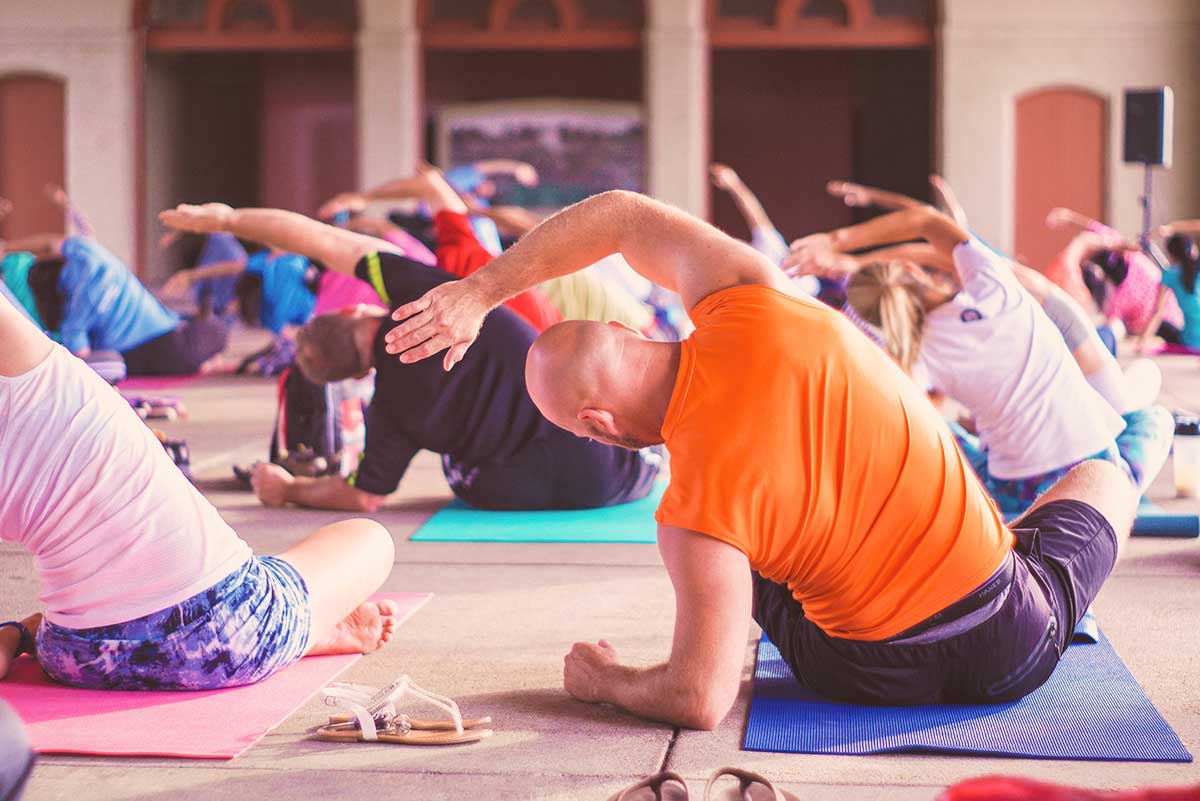The Benefits of Exercise on Mental Health
January 17, 2023150 minutes a week of moderate to intense activity is good for physical and mental well-being
Everyone knows that exercise is good for the body, but did you know it is also good for the mind? Exercise and fitness can have a positive impact on mental health by boosting your mood, improving your sleep, and managing symptoms of depression, anxiety, and stress.
What are the mental health beneftis of exercise?
Those who exercise frequently report:
- Feeling more energetic throughout the day
- Better sleep
- Sharper memories
- Feeling calmer and more positive about themselves
No matter your age or fitness level, incorporating daily exercise can be used as a powerful tool to help manage mental health struggles and improve quality of life.
Is exercise useful against depression?
Studies have shown that exercise can help manage mild to moderate depression as much as antidepressant medication – but without the side-effects. The Mayo Clinic has reported that 30 minutes or more of exercise a day for three to five days a week – just 1.5 to 2 hours total – can help improve depressive symptoms (1).
A study from the Harvard T.H. Chan School of Public Health showed that running for 15 minutes or walking for an hour a day helped reduce the risk of major depression by 26% (2). Exercise helps promote neural growth and new brain patterns that encourage overall better wellbeing. It also helps release endorphins, which energize the brain and make you feel better.
How can I get started and stay motivated?
Beginning a fitness journey can be challenging for many people, and sticking to it over time can be even more challenging. These tips can help:
Find what you like to do.
It is important to find one or more types of physical activity you enjoy. For example, you might feel walking on a treadmill is a chore, but you might be energized by the camaraderie of a Pilates class. Finding a type of exercise you like will help you remain consistent and achieve your goals. Remember to start small. Trying to do too much too soon can be discouraging.
Speak to your health care professionals for support.
If you have known mental health issues, it is important to consult with a provider for guidance and support. Your provider can help you establish an exercise program that will enhance your overall mental and physical wellness plan. Also be sure to talk to your primary care provider about any issues that might affect your ability to exercise or if you experience pain beyond a little muscle soreness.
Prepare for bumps in the road.
Beginning the journey and staying on track may not be easy, but it can improve your quality of life, sometimes dramatically. Give yourself credit for any step in the right direction. If you miss a day, don’t stress over it; you can try again tomorrow. Stick with it. You will enjoy the benefits.
Need help?
St. Mary’s Wellness Center can help you at every stage of your fitness journey. Our friendly and highly trained staff are committed to partnering with you to help map out a fitness plan that helps you set and achieve goals for better health.
Caring staff, excellent equipment, fun classes, 24/7 badge access, and a convenient location make it easy to stay on track. To learn more, check out our website or call us at (706) 389-3356 for information or to schedule a tour.
And, if you live or work in the greater Franklin County area, be sure to check out St. Mary’s Sacred Heart Wellness Center in Lavonia or call (706) 356-7411.
Citations (APA)
- Mayo Foundation for Medical Education and Research. (2017, September 27). Depression and anxiety: Exercise eases symptoms. Mayo Clinic. Retrieved January 14, 2023, from https://www.mayoclinic.org/diseases-conditions/depression/in-depth/depression-and-exercise/art-20046495
- Robinson, L., Segal, J., & Smith, M. (2022, November 14). The mental health benefits of exercise. HelpGuide.org. Retrieved January 14, 2023, from https://www.helpguide.org/articles/healthy-living/the-mental-health-benefits-of-exercise.htm

